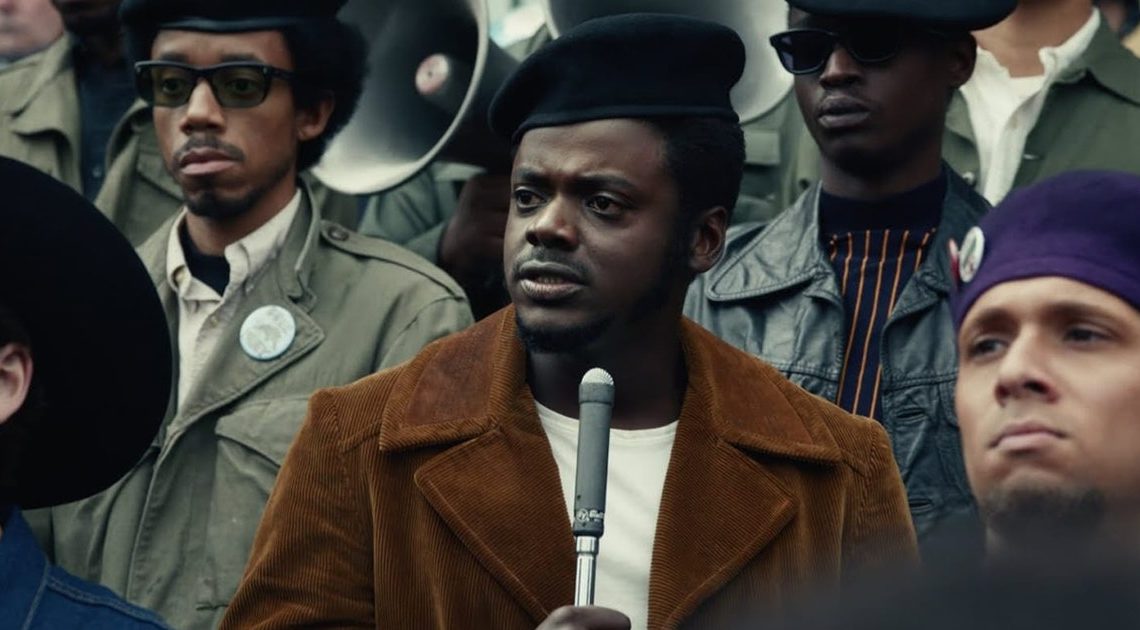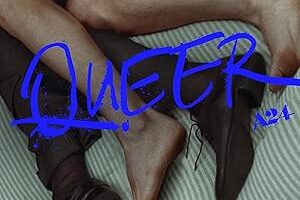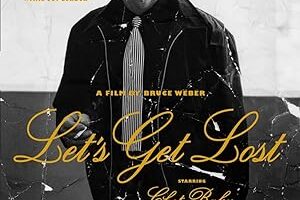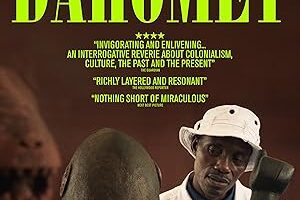Tropic Sprockets / Judas and the Black Messiah
By Ian Brockway
Shaka King, a student of Spike Lee, directs his second feature, a blunt and stirring meditation on the Black Panther Party and the FBI, “Judas and the Black Messiah.” The film is a concise and vivid primer on the party, its noble intent and one of its leading men, Chairman Fred Hampton.
It is the 1960s in Chicago. One night William O’ Neal (Lakeith Stanfield) goes in a bar and flashes his badge, aggressively arresting a man for stealing a car. O’ Neal is not a cop and violently pursued. He is taken to jail. Agent Roy Mitchell (Jesse Plemons) offers him a deal. Charges of grand theft will be dropped if O’Neal agrees to infiltrate the Black Panthers and give information. Thinking his hands are tied, he reluctantly agrees.
During a meeting, he meets the idealistic and impassioned Hampton (Daniel Kaluuya) who speaks of the evils of capitalism and raising up the black people, not just locally but worldwide. These concepts were intense, groundbreaking and revolutionary. During Hampton’s time as chairman, there were violent conflicts between the Crowns and the Panthers but Hampton felt, rightly, that progressive goals could be achieved by abandoning strife and working together. This possibility of groups banding together to position black people as equal to whites (as well as other minorities), terrified the FBI.
While it is true that the Panthers had guns and used them, their aims were not primarily militant, contrary to the predominant view at the time. Their communities were tortured and economically subjugated. Under constant attack, non-whites were fighting for their very survival.
William O’Neal, although opaque in feeling and difficult to define, is promoted to security man and observes Hampton as he makes peace with the Crowns and gains in popularity. O’Neal is more seriously pressured to provide floor plans for attacks against Fred Hampton, his poetic and uncompromising friend.
O’Neal is ominously approached by a furry coated Wayne (Lil Rel Howery) who asks him to slip a narcotic in Hampton’s drink. O’Neal adamantly refuses, but then does so hurriedly.
Jesse Plemons gives another turn as a stoic racist authority and delivers it well, while Dominique Fishback is provocative as Hampton’s girlfriend who speaks softly and quickly while poetry spills from her every pore.
Though the film does a solid job of portraying Hampton as a serious heartfelt man of absolute intention, the most arresting aspect of the film is the figure of William O’Neal. Enigmatic and volatile, tortured and vexed, yet also passive, he is the more compelling character here and Lakeith Stanfield excels in his role.
Given that some still feel that the Black Panthers were primarily a vicious militant organization without positive ideals, “Judas and the Black Messiah” should be seen as a fine introduction to Fred Hampton and his desire to raise up all minorities, reaching toward equal economic opportunities in grand but far reaching manners. No doubt many (myself included) were ignorant of the fact that Hampton brought breakfast to disabled activists in 1964 during their own struggle for civil rights and unhindered access. Whenever freedom was under duress, Hampton was present with immediate spirit, to aid the cause.
Though this progressive leader (along with Mark Clark) was disgustingly murdered in bed when 80 bullets were fired by police as he slept, Hampton’s girlfriend now teaches the Black Panther Party Cubs, focusing on education. Hampton’s son, Fred Hampton Jr, is the president and chairman of the group.
Write Ian at [email protected]
[livemarket market_name="KONK Life LiveMarket" limit=3 category=“” show_signup=0 show_more=0]





No Comment